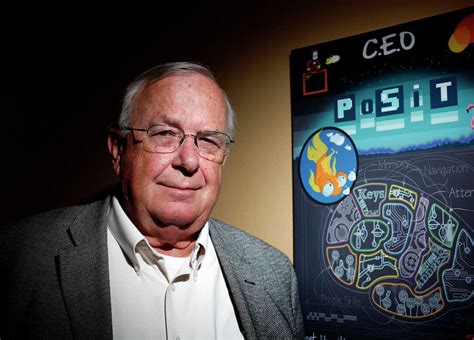A Quote by Edward de Bono
Only the human brain can deliberately change perceptions, change patterns, invent concepts and tolerate ambiguity.
Quote Topics
Related Quotes
My life is not possible to tell. I change every day, change my patterns, my concepts, my interpretations. I am a series of moods and sensations. I play a thousand roles. I weep when I find others play them for me. My real self is unknown. My work is merely an essence of this vast and deep adventure.
One of the things cognitive science teaches us is that when people define their very identity by a worldview, or a narrative, or a mode of thought, they are unlikely to change-for the simple reason that it is physically part of their brain, and so many other aspects of their brain structure would also have to change; that change is highly unlikely.




































